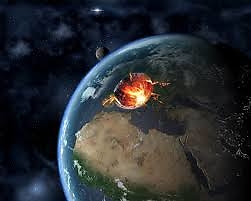Somewhere under the ground of Geneva lies a huge circular tunnel of 27 kilometer. In 1984 researchers started to build a Large Electron-Positron Collider to find out what happened exactly with particles when accelerated really fast. The Large Electron-Positron Collider was put into operation in 1989 and after 11 years of useful work the machine had to make place for the Large Hadron Collider (LHC). From 2000 until 2008 the whole cavern was emptied and made ready for the LHC. Finally on the 10th of September the LHC was finished and ready for testing. Of course authorities wanted it to be completely safe, so some very strict safety regulations were set. So together with the development of the LHC itself, also a LHC Safety Assessment Group (LSAG) was set up. They are in charge of determining if the tests are safe and in case something goes wrong there are enough safety features to maintain the safety of Geneva.
In 2010 the LHC made its first research run until 2013. Since the ordinary people had actually no idea what exactly was going on there, stories about black holes, lethal cosmic rays arose. People were scared about things they couldn’t comprehend. Even with the report the LSAG, a group of independent researchers, that concluded that the LHC particle collisions pose no conceivable threat. Headlines such as “CERN’s LHC will create a black hole that destroys earth” and even the movie Angles and Demons, in which dark matter created at CERN could consume the whole Vatican, created fear. Soon after people started lawsuits against CERN to stop the LHC.
Lawsuits against CERN all failed and CERN was free to do experiments. Now 7 years after the LHC was completed and the world is still there. The LHC is one of many examples where the absence of evidence and incompleteness of scientific knowledge caused paranoia among some people. To prevent cases like this to happen the Precautionary Principle can be used. The Precautionary Principle states that if an action or policy has a suspected risk of causing harm to the public or to the environment, in the absence of scientific consensus that the action or policy is not harmful, the burden of proof that it is not harmful falls on those taking an action. So there needs to be a scientific certainty that there is no or very little chance that it can go wrong. The same thing happened at CERN when in 2003 a group of independent scientists (LSAG) proved that the LHC particle collisions pose no conceivable threat.
So even with minimalized risks, how do you deal with the ignorance of the masses? Some people still think the world will be consumed by a huge black hole created by CERN. Should we always just trust that scientists make the right decisions? Or is ignorance a way of testing the scientific researches by letting them explain what they are doing in normal words instead of scientific terms?
